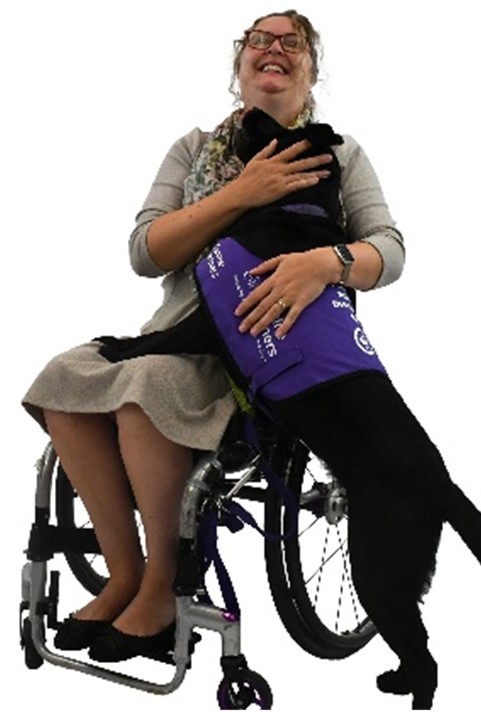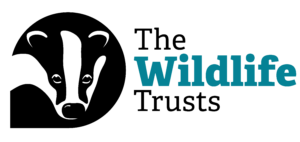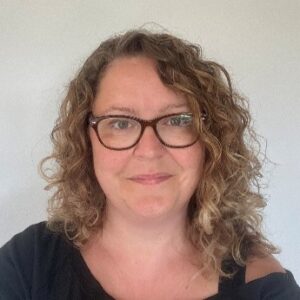- Home
- Equality, Diversity and Inclusion at The Wildlife Trusts
Equality, Diversity and Inclusion at The Wildlife Trusts
Posted on • Charity sector, Disabilities and health conditions, Environment, LGBT+


Miriam Bentley-Rose, OU Masters graduate and Strategic Lead for EDI at The Wildlife Trusts, shares her passion and experience in providing an inclusive and supportive work environment and increasing diversity in the environmental sector. Follow The Wildlife Trusts on OpportunityHub and explore opportunities at the organisation. Find out more about Equality and diversity in the workplace and take the free OpenLearn course Diversity and inclusion in the workplace to gain a digital badge you can display on your CV or LinkedIn profile.
My role in EDI at The Wildlife Trusts
I never set out to work in Equality, Diversity, and Inclusion (EDI); in fact, the term wasn’t even widely recognised when I began my career over 30 years ago. My goal was always to make a meaningful difference in people’s lives, and as my career evolved, so did my role in shaping and advancing EDI. In 2016, I earned my Master of Education (MEd) degree in Equality and Diversity from The Open University, a qualification that continues to inform my work every day.
Today, I serve as the Strategic Lead for EDI at The Wildlife Trusts—a role I am truly passionate about. Since stepping into this position, we have added an additional 5 staff networks. These networks provide crucial support to over 500 employees and represent a range of communities, including disability, LGBTQ+, mental health, women, people of colour, and young professionals.
Through our efforts, we have also successfully increased diversity across the federation, and our 2024 annual diversity survey showed:
- 34% of staff have caring responsibilities
- 15% identify as LGBTQ+
- 30% have disabilities
- 11.1% of our trainees come from minoritised ethnic backgrounds
As we move forward, our primary focus is on increasing ethnic diversity within the federation. The environmental sector is the second least ethnically diverse sector in the UK, and we are committed to ensuring that everyone has the opportunity to experience nature. This commitment extends beyond our workforce to the communities we serve. Additionally, we are undertaking a significant initiative to enhance the accessibility of our nature spaces—work that I feel privileged to contribute to.
My role is incredibly diverse, and no two days are ever the same. While I may not work directly on a reserve, I know that fostering a more inclusive and representative workforce contributes to nature restoration. Research shows that diverse teams solve problems faster than non-diverse teams—an essential factor as we tackle the dual crises of biodiversity loss and climate change.
I am speaking as an OU alumni and as a wheelchair user (following an accident in 2014). Navigating career progression as a disabled woman has been challenging, with numerous barriers still in place despite existing legislation. I experienced first-hand how my career trajectory slowed after becoming disabled. However, I want to encourage anyone facing similar challenges—do not give up. There are organisations that will embrace your talents and contributions, and I am proud to say that The Wildlife Trusts is one of them.
 Miriam Bentley-Rose BSc (Hons) Med FIEDP has spent over 30 years working in the Equality sphere across many sectors. As a disabled female leader, Miriam is passionate about ensuring the voice of lived experience informs all Equality, Diversity and Inclusion work. Through her role as Strategic Lead for EDI at The Wildlife Trusts, she is making a real difference and cultivating a truly inclusive movement. Miriam also chairs the Wildlife and Countryside Link EDI Working Group and is a Fellow of the Institute of Equality and Diversity Practitioners.
Miriam Bentley-Rose BSc (Hons) Med FIEDP has spent over 30 years working in the Equality sphere across many sectors. As a disabled female leader, Miriam is passionate about ensuring the voice of lived experience informs all Equality, Diversity and Inclusion work. Through her role as Strategic Lead for EDI at The Wildlife Trusts, she is making a real difference and cultivating a truly inclusive movement. Miriam also chairs the Wildlife and Countryside Link EDI Working Group and is a Fellow of the Institute of Equality and Diversity Practitioners.